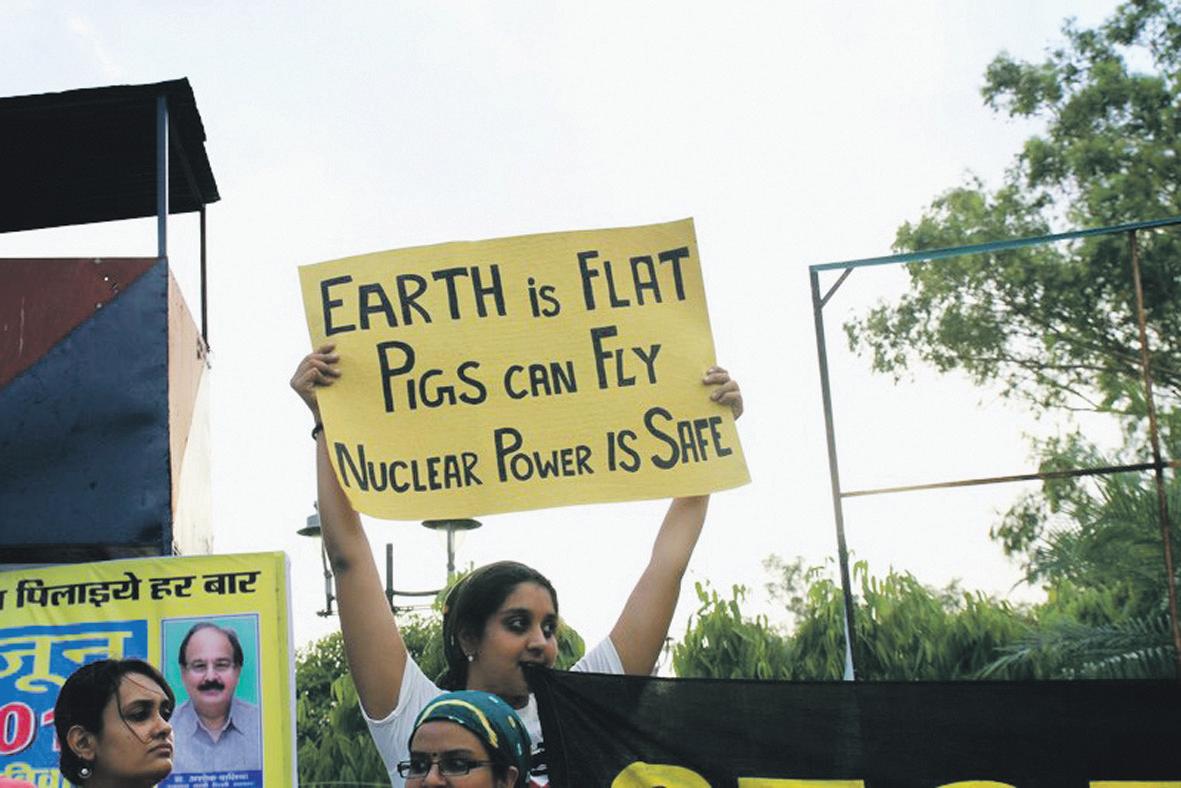
1 minute read
pigs can fly,
from 2013-08 Sydney (1)
by Indian Link
term radioactive waste disposal policy. There is no distinction between military and civilian nuclear affairs and this means that the government does not disclose any information about this sector to the public.
The nuclear non-proliferation treaty aims to prevent the proliferation of nuclear weapons and promote disarmament, while giving signatories the right to use nuclear technology for peaceful ends. However, India is one of the countries that has not signed this treaty.
India has entered into nuclear deals with countries like US who are looking to revitalise their economies, while ignoring the concerns of the poor villagers who live near these plants. At Kudankulam, the agreement indemnifying the Russian supplier against accidents mocks the very absolute liability principle that deters foreign corporations from setting up nuclear plants in India.
Politicians often delay decisions in the hope that people will tire and conflicts will dissipate. This is not so easy now with an increased awareness of the dangers of using nuclear energy. Antinuclear movements are lending support to each other globally.
A Public Interest Litigation has now been filed against the Indian government’s nuclear programme at the Supreme Court. The Right to Information Act (RTI) has been used well by the locals to gather information to support their struggle, though little is forthcoming. Bhargavi points out that the Prime Minister Manmohan Singh tried to blame American and Scandinavian Non Government Organisations (NGOs) for instigating the protests as a way of undermining Russian nuclear credibility. And when Dr APJ Abdul Kalam and Dr Shantha of the Cancer Institute have spoken about their satisfaction regarding the safety of nuclear plants, the common man’s voice is silenced. But they continue to protest.
Nuclear power is a centralised form of power supply that does not empower the local community. It makes them vulnerable to the decisions and interpretations of scientific and technological experts. All this falls through when a disaster happens. It is the locals and their future generations who bear the brunt of the accident. What India and the world needs are safe, small-scale, renewable power options.

“If you believe this, say NO to nuclear, speak to your local politicians, and stop the sale of uranium to India,” is Bhargavi’s plea. Friends of the Earth website: www.foe.org.au















